Search Images
Browse Content (p. 159)
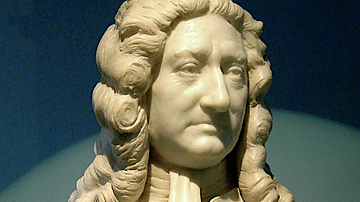
Image
Bust of Edmond Halley
A bust of the English scientist and cartographer Edmond Halley (1656-1742). The bust was made in 1904 by Henry Alfred Pegram. (Royal Greenwich Observatory Museum)
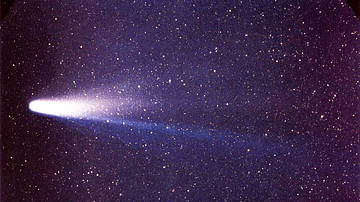
Image
Halley's Comet
An image captured in 1986 of Halley's Comet, named after the English scientist and cartographer Edmond Halley (1656-1742) who accurately predicted its orbit in relation to Earth.

Image
Catherine the Great and the Russian Empire, c. 1796
A map illustrating the state of the Russian Empire, c. 1796, during the reign of Ekaterina II Alekseyevna (born Princess Sophie of Anhalt-Zerbst), commonly known as Catherine the Great. Longest ruling Russian Empress (1762 – 1796), she continued...
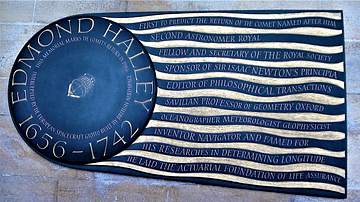
Image
Halley Memorial Plaque
A memorial plaque in Westminster Abbey commemorating the achievements of the English scientist and cartographer Edmond Halley (1656-1742).
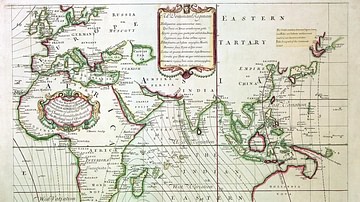
Image
Magnetic Sea Chart by Halley
A detail of a chart showing lines of magnetic compass variation made in 1702 by the English scientist and cartographer Edmond Halley (1656-1742). Halley hoped the chart would aid navigation but the variations in magnetism over time made it...

Image
Edmond Halley by Murray
A c. 1690 portrait by Thomas Murray of the English scientist and cartographer Edmond Halley (1656-1742).
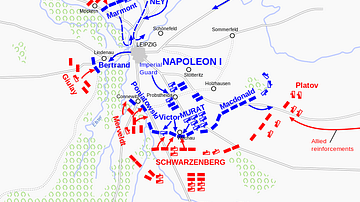
Image
Battle of Leipzig, 16 October 1813
Actions of the first day of the Battle of Leipzig, 16 October 1813. Map by Wikipedia user Andrei nacu, 2007.
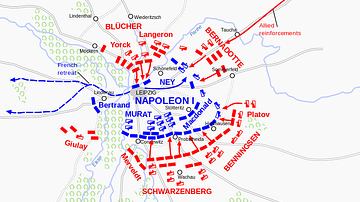
Image
Battle of Leipzig, 18 October 1813
Actions on the second day of the Battle of Leipzig, 18 October 1813. Map by Wikipedia user Andrei nacu, 2008.
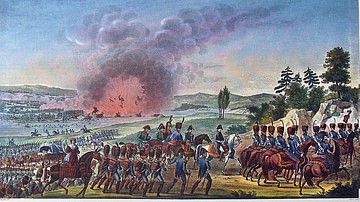
Image
Explosion of the Bridge at Leipzig
Premature explosion of the bridge at the Battle of Leipzig, which stranded tens of thousands of French troops in the city, 19 October 1813. Lithograph by Carle Vernet, 19th century.
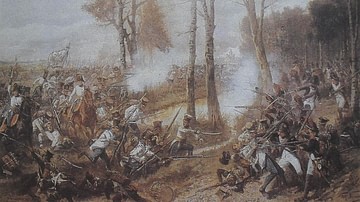
Image
Charge of the 19th Hungarian Infantry Regiment Against the French at Leipzig
Chrage of the 19th Hungarian Infantry Regiment against French troops, part of the Battle of Leipzig (16-19 October 1813). By Fritz Neumann, 19th century.